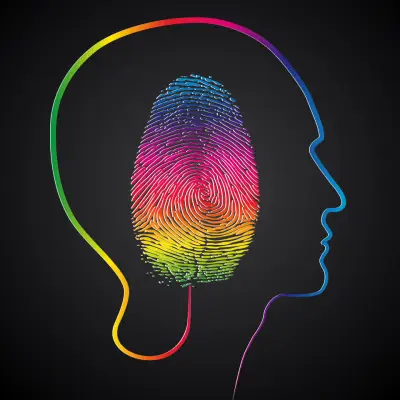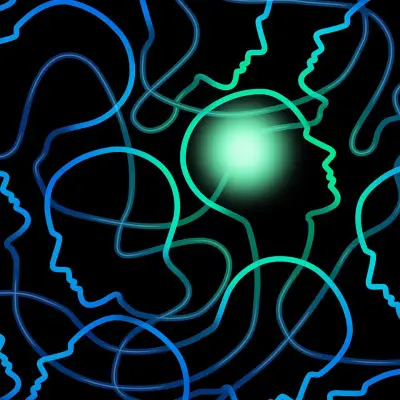Dreams can be a window into your subconscious, revealing your deepest fears, desires, and memories. When you experience dreams about past trauma, it can be unsettling and confusing. If you’ve been wondering why these dreams occur and what they mean, you’re not alone. This blog post provides clear explanations to help you understand traumatic dreams and how to manage them.
Jump to:
What Are Trauma Dreams?
Trauma dreams, also known as PTSD dreams or traumatic nightmares, are vivid, distressing dreams that are directly related to traumatic experiences from the past. These dreams can be so intense that they cause significant emotional distress and can affect your daily life.
Recommended for you!
Best SellersWhy Do You Dream About Past Trauma?
Understanding why you dream about past trauma can provide insight into your mental and emotional well-being. Here are several reasons why these dreams may occur, helping you comprehend the connection between your experiences and your subconscious mind.
The Brain’s Way of Processing Trauma
Your brain is always working, even while you sleep. Dreams about past trauma often occur because your brain is trying to process and make sense of the traumatic events you’ve experienced. During sleep, your mind continues to work through unresolved issues, and for many, this includes re-experiencing traumatic events in dreams.
An Emotional Release
Dreaming can serve as a release valve for emotions that are too overwhelming to process while awake. By reliving traumatic experiences in dreams, your mind attempts to cope with and gradually release the pent-up emotions associated with those events.
Memory Consolidation
During sleep, your brain consolidates memories from the day. Traumatic events can become deeply embedded in your memory, and dreaming about them is a way for your brain to sort through and integrate these memories into your broader life narrative.
Stress and Anxiety
Avoidance in Waking Life
If you consciously avoid thinking about your trauma during the day, your brain might bring it up in dreams as a way of forcing you to confront and process the memories you are avoiding.
Triggers in Daily Life
Certain sights, sounds, or situations in your daily life can act as triggers, bringing past trauma to the forefront of your mind. These triggers can follow you into your sleep, causing you to dream about the traumatic events they remind you of.
Common Trauma Dreams and Their Meanings

Dreams related to past trauma can manifest in various forms, each with its unique significance. Interpreting your dreams can help you understand the underlying issues they represent, providing a pathway to healing and emotional well-being.
Reliving the Trauma
Reliving the traumatic event in your dreams is a common occurrence. These dreams are often vivid and intense, causing you to wake up feeling distressed. They signify that your brain is still trying to process the trauma.
Symbolic Dreams
Sometimes, trauma dreams may not directly relive the event but use symbols and metaphors to represent the trauma. For example, dreaming of being chased might symbolise feeling threatened or unsafe, while drowning could represent feeling overwhelmed by emotions. These symbolic dreams reflect the psychological impact of the trauma without directly showing the traumatic event.
Nightmares
Nightmares related to trauma are common and can significantly disrupt your sleep. These nightmares often involve themes of fear, helplessness, and danger. The intensity of these nightmares can lead to insomnia and anxiety about falling asleep, creating a vicious cycle of sleep disturbance and heightened stress.
Fragmented Dreams
Trauma can cause dreams to be fragmented and disjointed. These dreams might not make much sense but reflect the chaos and confusion associated with the traumatic experience. The fragmented nature of these dreams mirrors the disrupted memory processing that often accompanies trauma.
Repetitive Dreams
Repetitive dreams involve experiencing the same or very similar dreams repeatedly. These dreams can be exhausting and distressing, indicating that your mind is stuck on certain aspects of the trauma, unable to move past them.
Emotional Dreams
Emotional dreams focus more on the feelings associated with the trauma rather than specific events. You might wake up feeling the same intense emotions, such as fear, anger, or sadness, that you felt during the traumatic event. These dreams highlight the emotional toll of the trauma.
Displacement Dreams
Displacement dreams involve scenarios where the traumatic event is replaced with a different but equally distressing event. This type of dream allows your subconscious to process the trauma indirectly. For instance, instead of dreaming about a car accident you experienced, you might dream about being trapped in a burning building.
How Do I Stop Dreaming About Past Trauma?

Experiencing dreams about past trauma can be distressing, but there are effective ways to reduce their frequency and impact. Here are some strategies that can help you manage and diminish these unsettling dreams, offering a pathway to better sleep and emotional well-being.
1. Seek Therapy and Professional Help
Seeking therapy is one of the most effective ways to address trauma dreams. Therapists can use techniques like Cognitive-behavioural therapy (CBT) and Eye Movement Desensitization and Reprocessing (EMDR) to help you process and reduce the frequency of these dreams. These therapies focus on changing the way your brain processes trauma, helping you integrate these memories in a less distressing way.
2. Practise Healthy Sleep Habits
Establishing a regular sleep routine can improve sleep quality and reduce the occurrence of trauma dreams. Try to go to bed and wake up at the same time every day. Create a calming bedtime routine, such as reading a book, taking a warm bath, or listening to soothing music, to signal to your body that it's time to relax and prepare for sleep.
3. Use Relaxation Techniques
Practising relaxation techniques such as meditation, deep breathing, and mindfulness can help calm your mind before bed, making it easier to sleep peacefully. These practices reduce overall stress and anxiety, which can contribute to a decrease in trauma-related dreams. Engaging in progressive muscle relaxation or guided imagery can also help you unwind.
4. Journal
Writing about your dreams and feelings can help you process and understand them better. Keeping a dream journal can be particularly helpful in identifying patterns and triggers. By documenting your dreams, you can gain insights into recurring themes and work with your therapist to address these issues. Additionally, journaling can serve as a therapeutic outlet for expressing emotions that you might find difficult to articulate otherwise.
5. Consider Medication
In some cases, medication might be prescribed to help reduce the frequency and intensity of trauma dreams. Consult with a healthcare professional to explore this option. Medications such as prazosin, which is often used to treat high blood pressure, have been found effective in reducing nightmares in people with PTSD. Always discuss potential side effects and benefits with your doctor.
6. Limit Exposure to Triggers
Identify and limit exposure to triggers that might provoke trauma dreams. This could involve avoiding certain media, situations, or even discussions before bed that remind you of the traumatic event. By reducing these triggers, you can create a more peaceful mental state conducive to restful sleep.
7. Find Support Networks
Having a strong support network of friends, family, or support groups can provide emotional comfort and understanding. Sharing your experiences and feelings with those you trust can help reduce some of the burdens associated with trauma dreams. Knowing that you are not alone and that others understand your struggles can be incredibly comforting and healing.
8. Engage in Mind-Body Practices
Mind-body practices such as yoga, tai chi, or qigong can promote relaxation and reduce stress. These activities combine physical movement with mindfulness and deep breathing, helping to balance your mental and physical state. Regular practice can improve overall well-being and potentially reduce the intensity of trauma-related dreams.
Cultural Interpretations of Traumatic Dreams

Cultural interpretations of traumatic dreams vary widely, reflecting different beliefs and understandings about the nature of dreams and their significance. Here are some perspectives from various cultural contexts that provide diverse insights into how traumatic dreams are viewed and interpreted.
Western Perspectives
In Western cultures, trauma dreams are often viewed through the lens of psychology and mental health. They are seen as a way for the brain to process and make sense of traumatic experiences. This perspective emphasises the importance of understanding and addressing the psychological impact of trauma to promote healing and recovery.
Eastern Perspectives
In many Eastern cultures, dreams are seen as a connection to the spiritual world. Traumatic dreams might be interpreted as messages from ancestors or as a way to balance karma. This view suggests that these dreams serve a purpose beyond personal psychology, potentially guiding individuals towards spiritual growth and resolution of past life issues.
Indigenous Perspectives
Indigenous cultures often see dreams as a powerful form of communication with the spirit world. Traumatic dreams can be interpreted as a call to heal and reconnect with cultural roots and traditions. Dreams are considered an integral part of the journey towards spiritual and communal harmony, often involving rituals or ceremonies to address the messages received in dreams.
African Perspectives
In many African cultures, dreams are viewed as a means of receiving guidance and warnings from the spiritual realm. Traumatic dreams may be seen as a call to address unresolved issues or conflicts within yourself or the community. They can also be interpreted as signs that you need to perform specific rituals or seek advice from a spiritual healer.
Latin American Perspectives
In Latin American cultures, particularly within indigenous and mestizo communities, dreams are often considered a reflection of your spiritual and emotional state. Traumatic dreams might be interpreted as a sign of imbalance or disharmony, necessitating spiritual cleansing or rituals to restore balance. Dreams are also seen as a way to connect with the ancestors and receive their wisdom.
Middle Eastern Perspectives
In some Middle Eastern cultures, dreams are believed to carry messages from divine or supernatural entities. Traumatic dreams can be seen as warnings or signs that you need to pay attention to certain aspects of your life or behaviour. These cultures often place significant importance on dream interpretation, seeking guidance from religious or spiritual leaders.
Recommended for you!
Best SellersFrequently Asked Questions About Traumatic Dreams
Can Dreams Cause Trauma?
While dreams themselves may not cause trauma, they can certainly reinforce and exacerbate existing trauma. Repeated exposure to distressing dreams can lead to increased anxiety and depression, and even exacerbate PTSD symptoms.
What Is a PTSD Dream Like?
A PTSD dream is typically intense and vivid. It can involve reliving the traumatic event in detail, feeling the same emotions you felt during the trauma, and waking up in a state of distress. These dreams can be recurring and often lead to disrupted sleep patterns.
Can Trauma Cause Weird Dreams?
Trauma can cause weird and unsettling dreams. The brain’s attempt to process complex and painful emotions can result in dreams that are strange, fragmented, or surreal.
Can You Release Trauma Through Dreams?
Dreams can be a way to release trauma, as they allow you to process emotions and memories that you might not be able to confront while awake. However, this process can be challenging and might require professional support.
Why Do I Keep Having Flashbacks of Old Dreams?
Flashbacks of old dreams, particularly those related to trauma, may indicate that your brain is still working through unresolved issues. It’s a sign that there’s still emotional work to be done to fully heal from the trauma.
Study Dream Analysis for £29
Addressing trauma dreams is an important step in your journey towards healing and well-being. If you’re looking to deepen your understanding of your dreams or pursue a career in dream analysis, Centre of Excellence offers a fascinating Dream Analysis Therapy Diploma Course. This course provides valuable insights and practical tools to help you master dream analysis and is available for a discounted price of £29!













